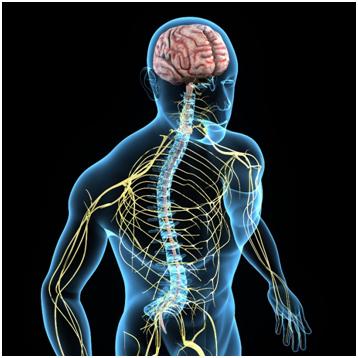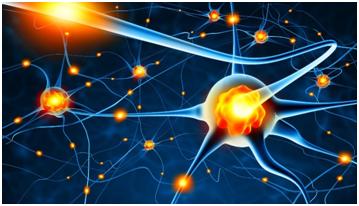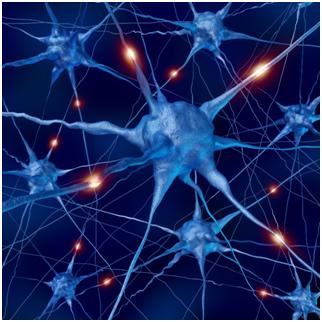|
Understanding The Body’s OS: The Autonomic Nervous System If your body were a computer, the autonomic nervous system would be its operating system. The autonomic nervous system regulates a variety of organs and bodily functions, ensuring that they work properly. Thanks to the autonomic nervous system, your heart beats, your lungs breathe, and various other body processes occur without your conscious effort. Disorders of the autonomic system can put your health gravely at risk, but there are medical devices and equipment that can help detect and treat problems with this indispensable system.
There are two divisions of the autonomic nervous system: the parasympathetic and sympathetic divisions. When the autonomic nervous system gets information about the body and environmental conditions affecting it, two things will typically happen. The sympathetic division will respond by stimulating body processes, such as speeding up the heart rate or contracting the pupils – or the parasympathetic division will respond by inhibiting these processes.
One of the better-known bodily processes controlled by the autonomic nervous system is the fight or flight response. This is a physiological reaction to a perceived threat or traumatic event. When human fight or flight responses are triggered, the adrenal medulla produces a variety of hormones that may amp up energy levels or strength. Two nerve cells form the primary components of an autonomic nerve pathway. One cell is housed in the spinal cord or brain stem and is connected by nerve fibers to the other cell, which can be found housed in a cluster of nerve cells referred to as an autonomic ganglion. Ganglia for the sympathetic division are typically found near the spinal cord, while ganglia for the parasympathetic division are found near the organs with which they connect. Nerve fibers from the ganglia connect them to the organs they regulate. The autonomic nervous system communicates via neurotransmitters - chemical messengers produced by the body. The two chemical messengers used by the autonomic nervous system are acetylcholine and norepinephrine. Cholinergic fibers secrete acetylcholine, while adrenergic fibers secrete norepinephrine. Acetylcholine is typically used in parasympathetic effects, while norepinephrine is commonly used for sympathetic responses. Acetylcholine is sometimes used to cause sympathetic effects, however.
There are a number of problems that can occur with the autonomic nervous system, and many of them can have serious health effects, including heart problems, blood pressure problems, erectile dysfunction, and difficulty breathing, among others. Autonomic nervous system disorders can occur on their own, or they may be a symptom of another illness, such as Parkinson's disease or diabetes. Special medical devices are often used to detect these disorders. Autonomic dysfunction occurs when nerves of the autonomic nervous system are damaged. The disorder may affect all or just a part of the ANS. In many cases, the conditions that cause damage to the ANS are temporary and can be reversed. In other circumstances, the conditions are permanent and will likely grow worse over time. Some types of autonomic nervous system disorders include:

People who suspect they may have an ANS disorder should seek medical treatment as soon as possible, as catching disorders early can often allow more effective mitigation of the problem. How Doctors Treat ANS Disorders Autonomic nervous system disorders have a variety of treatments, depending on the type of damage to the system and its causes. Treatment of autonomic nervous system disorders typically involve treatment of diseases or disorders contributing to ANS disorders.
For example, if an autoimmune neuropathy is found, medical professionals will treat the issue with immunomodulatory therapies. If diabetes is the underlying cause of ANS problems, doctors will try to obtain a more strict control of blood glucose through dietary changes and drug therapy. People with ANS disorders will usually need to avoid alcohol use, as it can have a detrimental impact.
ANS Assessment System Regular testing of the autonomic nervous system is recommended for people living with type 1 and type 2 diabetes by the American Diabetes Association. An advanced autonomic nervous system testing machine is available from Medical Device Depot, a leading online seller of medical devices and medical equipment. The ANS Assessment System provides fast and non-invasive tests of the autonomic nervous system. This device can help detect clinical autonomic disorders, as well as major illnesses and health risks that may otherwise be left undetected until they reach an advanced stage.The device can assess patients' risk of
The device works well in just about any medical practice system and provides a comprehensive assessment of the autonomic nervous system. The device has a three-year warranty, and clinics and hospitals that purchase it have access to toll-free technical support.
For medical practices seeking a convenient and reliable way to measure patient autonomic nervous system health, the ANS Assessment System, and the Sudomotor available from Medical Device Depot, provides an excellent tool. |





